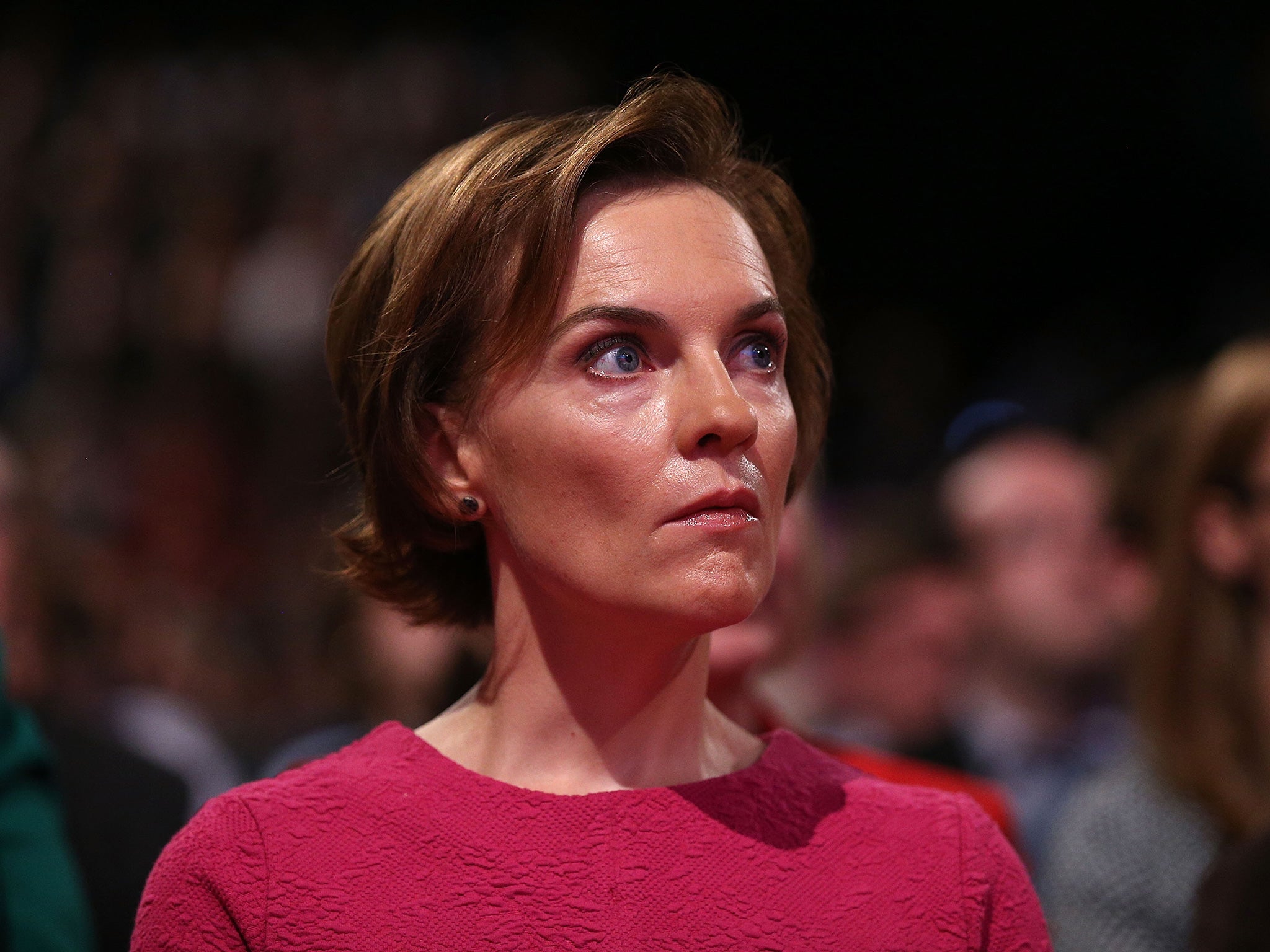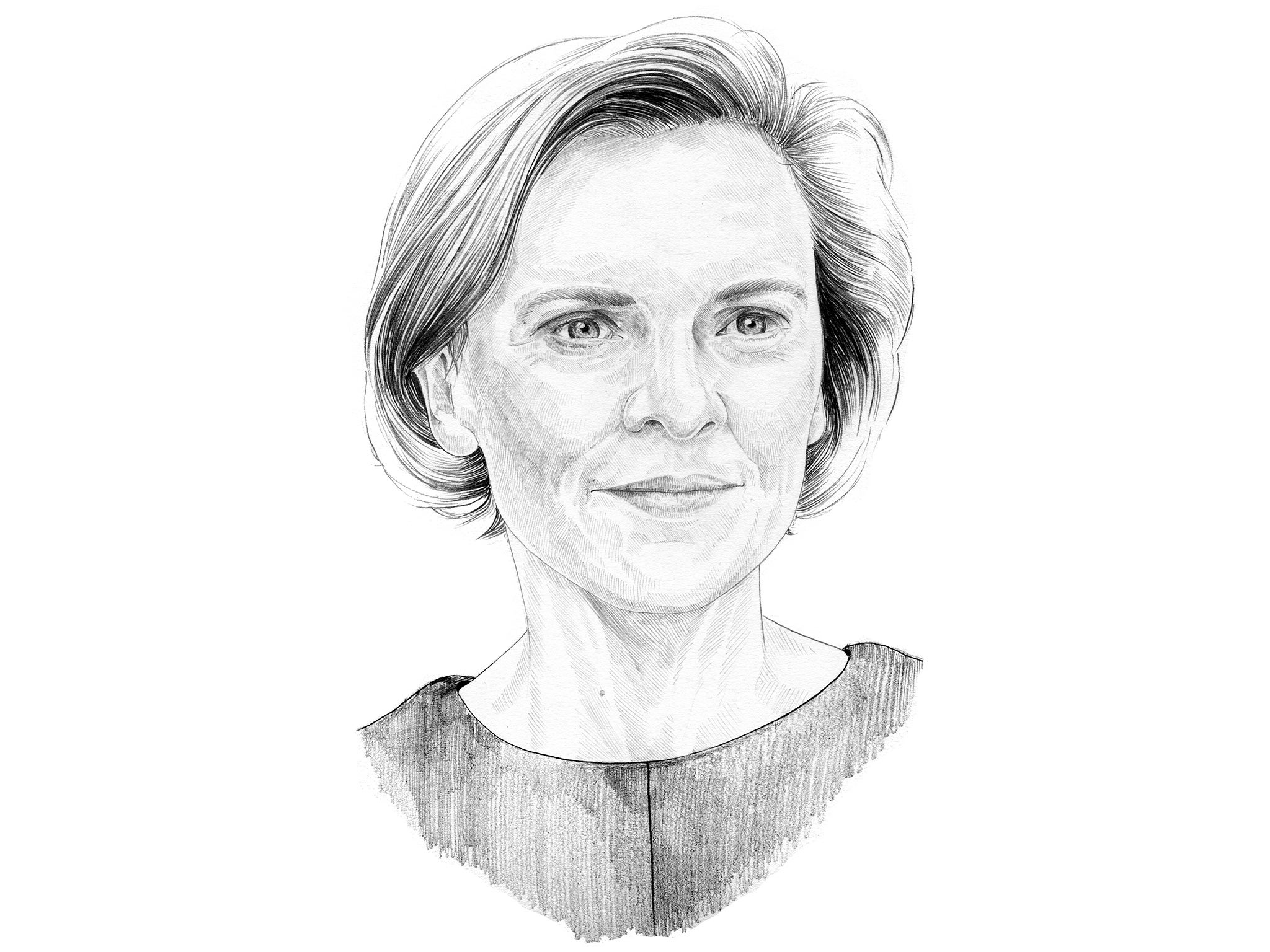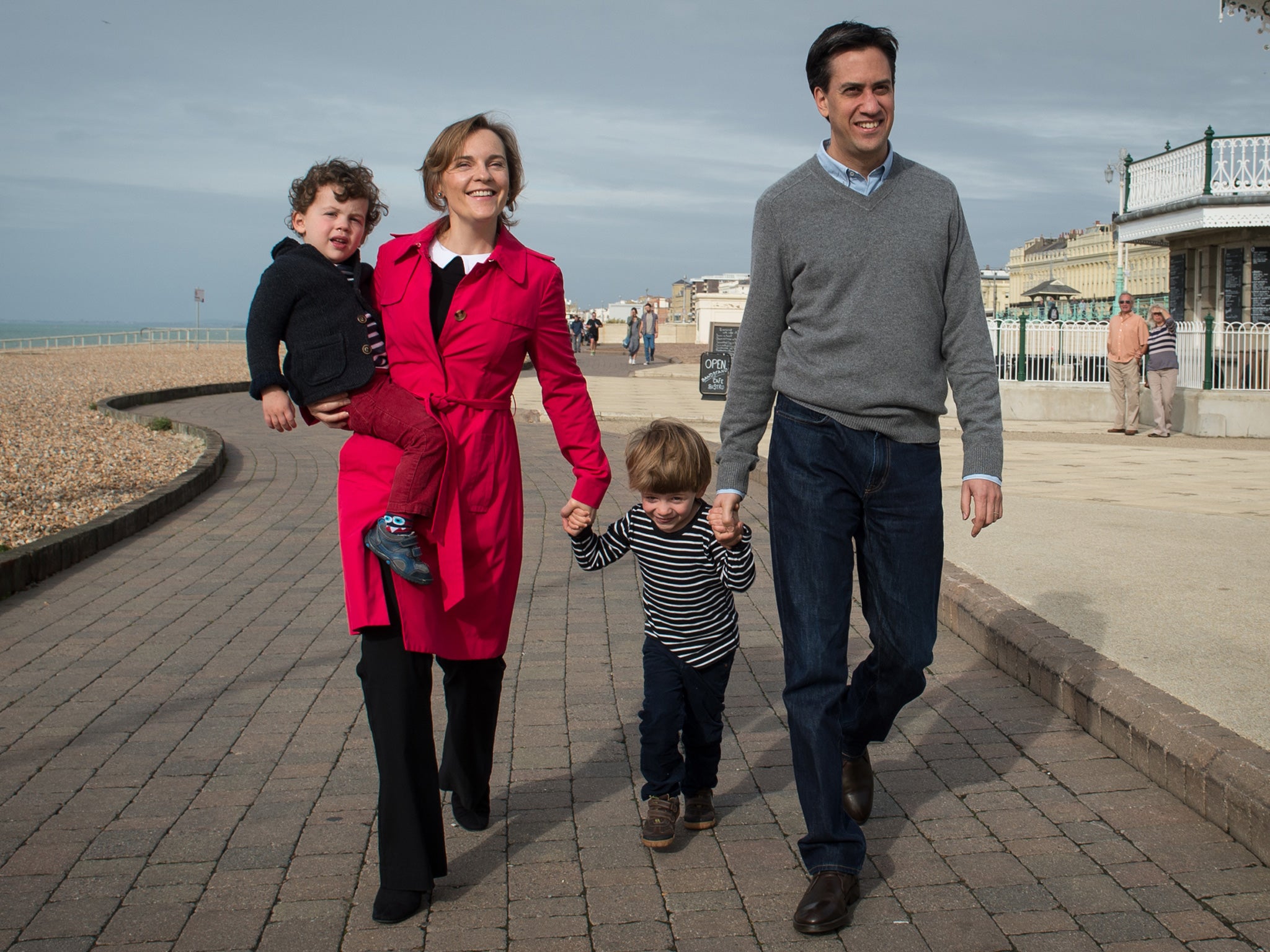Justine Thornton: Mrs Ed Miliband is no ordinary political spouse
Ed Miliband's wife is a top barrister who nearly became an actress. Is she ready for the scrutiny of life in the public eye?

Your support helps us to tell the story
From reproductive rights to climate change to Big Tech, The Independent is on the ground when the story is developing. Whether it's investigating the financials of Elon Musk's pro-Trump PAC or producing our latest documentary, 'The A Word', which shines a light on the American women fighting for reproductive rights, we know how important it is to parse out the facts from the messaging.
At such a critical moment in US history, we need reporters on the ground. Your donation allows us to keep sending journalists to speak to both sides of the story.
The Independent is trusted by Americans across the entire political spectrum. And unlike many other quality news outlets, we choose not to lock Americans out of our reporting and analysis with paywalls. We believe quality journalism should be available to everyone, paid for by those who can afford it.
Your support makes all the difference.Justine Miliband must have known that her husband’s enemies would take revenge in some form or other after she had given a BBC interview in which she defended her husband, Ed, as someone who stands for “the principle of decency in public life”.
She anticipated that there would be “vicious” attacks on his character. She cannot have foreseen that a propaganda war would focus on their kitchen. Or kitchens. During the interview the couple posed in an upstairs kitchen , a small, rather joyless little room, in which the lid on the kitchen bin lid does not close properly.
Then it emerged that there is a larger kitchen downstairs, a revelation considered so important that it caused a tidal wave of comment on social media, and made the front page of the Daily Telegraph. The point of this trivia is to devalue Ed Miliband. The implication is that a man who lives in a £2m house with his barrister wife cannot know about poverty, or the cost of living, or of other social issues.
The Milibands are not Mr and Mrs Average, of course. They are work-driven, high-earning professionals, living an affluent lifestyle in a comfortable part of north London. But both would claim that they have used their advantages in the service of people less well positioned to defend themselves, and that often involves clashing with powerful interests.

Justine Thornton – who uses her maiden name professionally, while being Mrs Miliband in the political sphere – has a solid reputation as an environmental lawyer. The law firm Chambers and Partners, which specialises in ranking law practices around the world, lists her among the UK’s 100 top junior counsels. According to their citation, she “can always be trusted to deliver practical and creative advice quickly. She is approachable, succinct and incredibly knowledgeable in matters relating to environmental law.”
Over the past five months, she has been involved in a complex trial which pitched a group of farmers from the Republic of Colombia against BP. She does not yet know whether she will be paid, because she took the case on a “no win, no fee” basis, and is awaiting the judgment.
Her role was to cross examine two of the expert witnesses to establish whether there is a causal link between the construction of an oil pipeline by a BP subsidiary, and soil erosion and damage to the water supply in the surrounding South American farmland, which BP denies. “Justine’s expertise played a key role in deploying arguments on this central question,” a spokesman for Leigh Day, the solicitors handling the case, said.
She was also the “senior junior” in the legal team that won a £55m payout from Royal Dutch Shell for the Bodo community in the Niger Delta whose homeland was ruined by two huge oil spills.
Another of her cases was that of Shasha Khan, a hotel manager who objected to a decision by Sutton council, in London, to allow developers to build an incinerator on open land near Croydon. Mr Khan did not have the money to fight the case, so had to raise what he could by crowd-sourcing, while Thornton and her instructing solicitor, Sue Willman, worked for what is known as a “discounted conditional fee”, which meant that when they lost the High Court case, they were paid only a fraction of what would have been due to them if they had won. The case has now gone to appeal. “Justine was excellent in court. She was on her own up against two QCs and another barrister,” Willman says.
She also worked with Willman on a case in Lincolnshire, in which a 76-year-old parish councillor, Shirley Giles, took on a district council over a decision to give planning consent for a power station. A Spalding Guardian report earlier this week suggested the council has backed down.

Justine Thornton was born in Manchester in 1970 and brought up in Nottingham, the daughter of Labour-voting professionals who have stayed out of the public eye. As a pupil at West Bridgford comprehensive school, she appeared to be heading for an acting career. She appeared in the 1987 Central Television series Hardwicke House, which has been compared to the anarchic sitcom The Young Ones. It was set in a school in which teachers and pupils were equally badly behaved. In a pilot, Thornton’s character, Erica, called the Foreign Secretary, Sir Geoffrey Howe, a “fascist”. She also appeared in the children’s show Dramarama.
Perhaps sensibly, she put her acting career behind her, after going to Robinson College, Cambridge to study law. She graduated in 1992, and was called to the bar in 1994. As a young barrister, she was a close friend of Frances Howell, future wife of the Chancellor, George Osborne. They went backpacking together in South America. “I’m immensely fond of Justine,” Mrs Osborne told Time magazine in 2012. Later, she became friends with another lawyer, Quincy Whitaker, daughter of a former Labour MP. In 2005, they and another friend planned a holiday together to see the Roman ruins in Libya, then ruled by Muammar Gaddafi. After it was booked, Justine said she wanted to come accompanied by the new man in her life.
This was Ed Miliband, newly elected MP for Doncaster North. They had met the previous year, and Justine had gone to Doncaster to help in his campaign – though they did not marry until 2011. When Miliband was elected Labour leader in 2010, a certain kind of Daily Mail commentator was outraged that he was living with a woman by whom he had had a child out of wedlock.
The Libya holiday could have been a disaster. Whitaker berated the new MP about New Labour and the Iraq war, but found that he was a patient listener. He was almost arrested in Tripoli for taking photographs of murals, unaware of a military installation in the background. “The secret police appeared out of nowhere and made him delete the photographs. I have a memory of thinking ‘Oh dear, this’ll be a bit embarrassing: an English MP arrested’,” Whitaker said.
She added: “I don’t think it was the prospect of his being an MP that attracted Justine. She gave the impression that she was genuinely interested in the process of election and canvassing and that, but I don’t think she would enjoy being in the limelight particularly or the celebrity aspect, if he can be considered a celebrity. They’re interested in talking about things. Justine is very interested in ideas. She is genuinely interested in discussing what is the right thing to do.”
But for the last couple of days, the “right thing to do” has barely featured in political conversations, drowned out by the hubbub over the house with two kitchens. Miliband’s aides have had to explain that the house has two kitchens because it used to be divided into flats, they do not use the one downstairs, and anyway Mrs Miliband is no kitchen goddess. She must think it all exasperatingly silly – but if she discovers in May that she is the wife of a prime minister, she will have to put up with a lot worse.
A life in brief
Born: 25 September 1970, in Manchester.
Family: Parents are Stewart and Margaret Thornton. Married Ed Miliband in 2011. They have two sons.
Education: West Bridgford School, Nottingham. Read law at Robinson College, Cambridge, graduating in 1992.
Career: Called to the Bar in 1994. Adviser to the Government on biotechnology and the environment, 2000-5; chair of Sera, Labour’s environment campaign.
Join our commenting forum
Join thought-provoking conversations, follow other Independent readers and see their replies
Comments